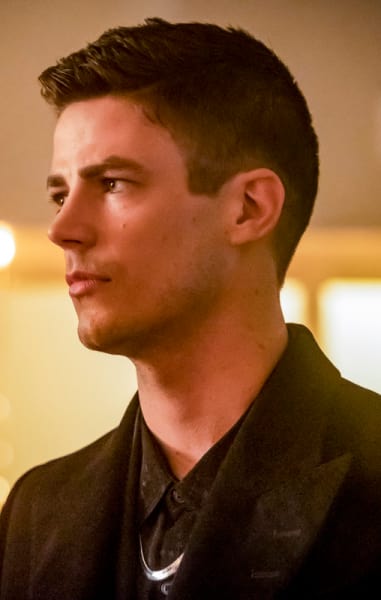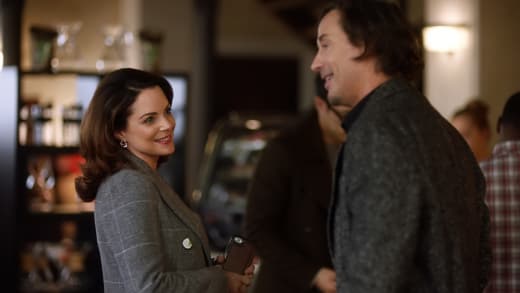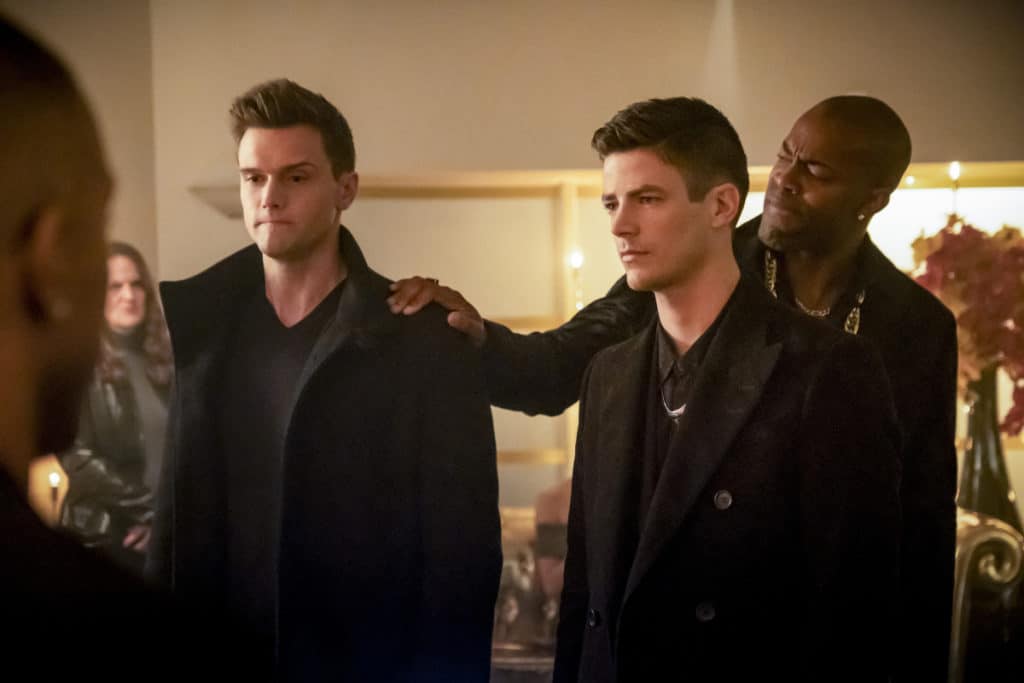

Poor Grant Gustin gets precious little to work with, largely because it feels so strange to have Barry’s Crisis-driven PTSD coming four episodes in to the back half of the season. The only reason this story even slightly works is because of David Sobolov’s impressive vocal performance, which manages to infuse Grodd with something that sounds like an ancient and gravelly sorrow. Barry’s clunky transition from anger over all the Crisis-spawned changes to acceptance that he has to move forward in this world he helped make takes place in about two minutes and feels largely unearned.

In fact, it barely focuses on Barry’s POV at all, instead spending time on forcing Killer Frost to spout more than her fair share of technical science babble about brainwave patterns and inexplicably cramming in something like an origin story for Chester’s time on the team. The Flash, unfortunately, doesn’t really tell this story with anything like nuance. Because in his world, Grodd is evil, and that’s all he’ll ever be. There’s something almost heartbreaking about the idea that Barry’s so desperate to hang on to the world he had, that he can’t see that this Grodd might have truly changed. Oliver’s death is just the tip of the iceberg for him-he can’t even find where his parents are buried in this new reality.

There’s an interesting story somewhere under all this, one in which Barry is paralyzed by all the changes Crisis on Infinite Earths has wrought in the world he thought he knew. (After all the gang even let Amunet Black go, like, two weeks ago-and she was barely what you could call repentant.) Here, however, Barry is reluctant to take Grodd’s word at face value. Given that Barry and the rest of Team Flash have embraced a wide variety of former rogues and villains in the past, including Caitlin’s formerly murderous dark alter ego, as well as Captain Cold, Heatwave and King Shark, this shift shouldn’t seem that strange.

Runk, must decide whether or not to believe his change of heart is legit. And Barry, trapped in Grodd’s mind thanks to a technological error on the part of apparent new Team Flash member Chester P. Former villain suddenly wants to make good, because reasons. The basic idea behind “Grodd Friended Me” is pretty simple-and it’s a story The Flash has told before. This time, we do get a bizarre but wildly entertaining sequence in which Barry and Grodd merge minds-and physical forms-to fight Solovar, because he’s serving as the gatekeeper to the mental prison in which both find themselves.ĭon’t get me wrong, this sequence is actually a ton of fun to watch, but it also isn’t entirely worth the journey it took to reach this moment, because almost everything that led up to it is so clunky and ham-fisted in terms of its overall narrative. Personally, Gorilla Grodd stories tend not to be my favorite thing, even though there’s always something fun about the inherent silliness of watching giant CGI animals like Grodd or King Shark fight our The Flash faves. There’s not a ton of middle ground, especially in an hour like this one, in which various members of The Flash cast take turns “speaking” as Grodd, presumably because the show spent all its money on special effects back during the Crisis on Infinite Earths crossover. Here’s the thing: You’re either the type of person that enjoys a Gorilla Grodd-themed The Flash episode, or you aren’t. It’s not clear why The Flash decided to follow up the long-awaited introduction of Sue Dearbon-and one of its best episodes of the season, to boot-with an hour that finds Barry Allen trapped in the mind of a giant genius gorilla, but that’s where we are, folks.


 0 kommentar(er)
0 kommentar(er)
